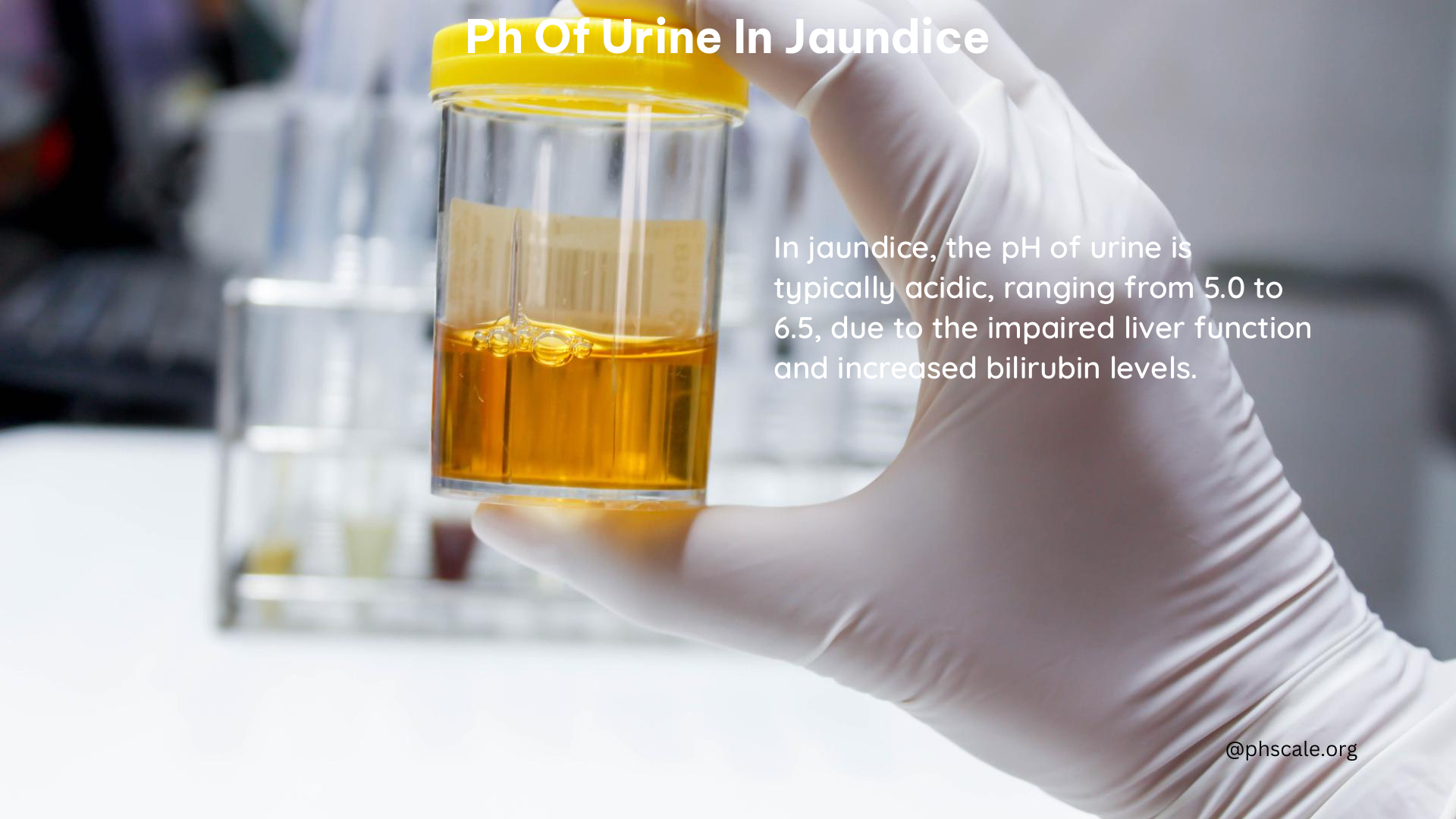The pH of urine in jaundice is typically more alkaline than normal, often ranging between 7.0 and 8.5. This is due to the presence of conjugated bilirubin, a water-soluble compound that can be excreted through the kidneys, leading to an increase in the urine’s pH level.
Normal Urine pH Range
The normal pH range of urine is generally considered to be between 6.0 and 7.5, although some sources suggest a wider range of 4.5 to 8.0.
pH Changes in Jaundice

In jaundice, the urine pH can become more alkaline due to the presence of conjugated bilirubin. This is because conjugated bilirubin is water-soluble and can be excreted by the kidneys, leading to a higher pH in the urine. The pH of urine can also be affected by other factors such as diet, medications, and underlying medical conditions.
Significance of Urine pH in Diagnosing Jaundice
Urine pH can be an important indicator in diagnosing jaundice. A higher urine pH can suggest the presence of conjugated bilirubin, which is often associated with liver or biliary tract diseases. However, urine pH alone is not sufficient for a diagnosis and must be considered in conjunction with other symptoms and test results.
Contaminants and Chemicals in Urine pH
Several contaminants and chemicals can affect urine pH, including:
| Contaminant/Chemical | Effect on Urine pH |
|---|---|
| Bilirubin | Increases alkalinity |
| Nitrates | Can cause false negatives in bilirubinuria tests |
| Antibiotics | Can decrease intestinal flora, leading to false negatives |
| Vitamin C | Can oxidize bilirubin, causing false negatives |
| Phenazopyridine, indicans, chlorpromazine, or etodolac metabolites | Can cause false positives due to reddish discoloration of urine |
Home Remedies and Balancing pH
To balance urine pH, it is essential to maintain a healthy diet and lifestyle. Here are some home remedies that can help:
- Drink plenty of water to dilute the urine and maintain a healthy pH.
- Eat a balanced diet rich in fruits and vegetables to help regulate pH levels.
- Avoid foods that can cause acidity, such as processed meats and sugary drinks.
- Consider taking supplements like vitamin C and omega-3 fatty acids to support liver health.
Helpful pH Quantity to Consume
Consuming foods and drinks with a pH close to the normal urine pH range can help maintain a healthy balance. Some examples include:
- Fresh fruits and vegetables, which tend to be slightly alkaline.
- Whole grains, which are generally neutral.
- Lean proteins, which are slightly acidic.
History of pH in Jaundice
The relationship between urine pH and jaundice has been studied extensively. Research has shown that jaundice is often associated with a higher urine pH due to the presence of conjugated bilirubin.
Solutions and Alternatives
To manage jaundice and maintain a healthy urine pH, consider the following solutions and alternatives:
- Medical treatment: Consult a doctor for proper diagnosis and treatment of underlying liver or biliary tract diseases.
- Dietary changes: Maintain a balanced diet rich in fruits and vegetables to help regulate pH levels.
- Supplements: Consider taking supplements like vitamin C and omega-3 fatty acids to support liver health.
- Lifestyle changes: Avoid foods that can cause acidity and maintain a healthy lifestyle to support overall health.
Reference:
1. Miyake, T., et al. (2020). Low Urine pH Is Associated with Non-alcoholic Fatty Liver Disease: A Community-based Cross-sectional Study. Journal of Clinical Medicine, 9(2), 342.
2. Medical News Today. (2020). Urine pH: Normal Ranges and What They Mean. Retrieved from https://www.medicalnewstoday.com/articles/323957
3. StatPearls. (2022). Bilirubinuria. Retrieved from https://www.ncbi.nlm.nih.gov/books/NBK557439/
4. MedlinePlus. (2022). Bilirubin in Urine: MedlinePlus Medical Test. Retrieved from https://medlineplus.gov/lab-tests/bilirubin-in-urine/
5. WebMD. (2023). What to Know About a Urine pH Test. Retrieved from https://www.webmd.com/a-to-z-guides/what-to-know-about-a-urine-ph-test
